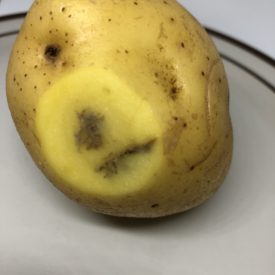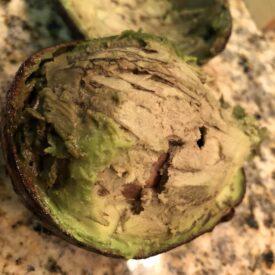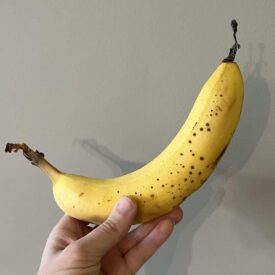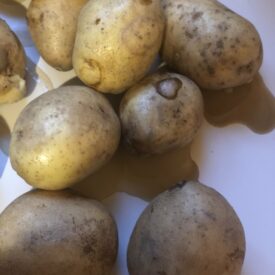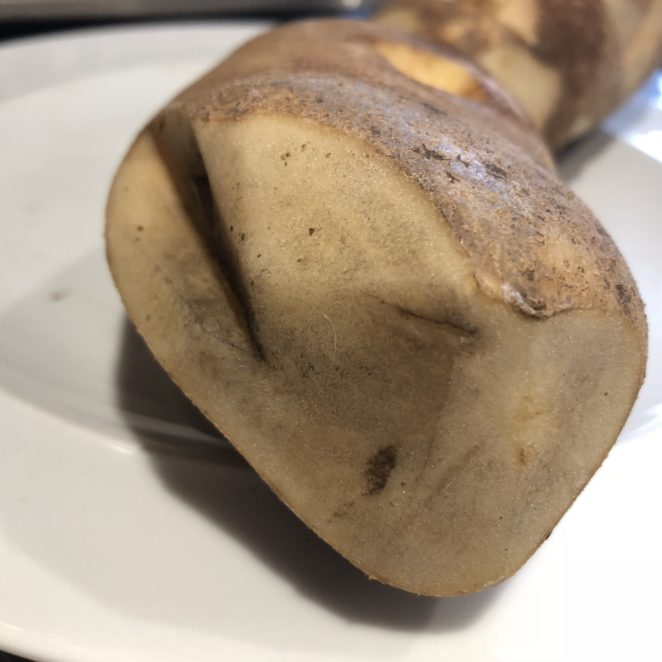
What you see: Black stuff on your chopped or peeled potatoes.
What is is: Oxidation after cells were damaged by chopping or peeling.
Eat or toss: Eat! You can peel off the black area if you find it unappealing, but these potatoes are fine.
Why prepped, raw potatoes turned black
When you cut into fruits and vegetables, you’re breaking open cells. Some types of produce deal with this trauma better than others, but the site of the wound often discolors (think of browned apples slices). Potatoes are especially sensitive, which is why peeling and chopping them ahead of time isn’t always the best idea.
Take the potato pictured above. After peeling it, I put it in the fridge. But when I went to use it the next day, it had the look of a long-neglected shower curtain liner. Black and splotchy.
I feared mildew or mold, but Nora Olsen, professor and extension potato specialist at the University of Idaho, assured me that I was just looking at some damage at the cellular level.
“Looks like it’s just like not healing nicely but there is no concern with eating that potato,” Olsen said. If you don’t like the look of it, she says, “You could cut it off or peel it off.”
Once cells are cut, enzymes and things they’ve kept bound up in separate compartments are spilled open. They react with each other and with oxygen, causing the color change.
Raw, chopped potatoes can turn black, brown or even pink
Cold temperatures and low humidity can exacerbate the situation, leading to an array of icky discoloration. Depending on the potato’s variety, environment and life experiences, you could see black, brown or even pink shading after leaving your chopped potato in the fridge.
Here’s what happened to a cube of raw red potato I left in my fridge for a couple days:
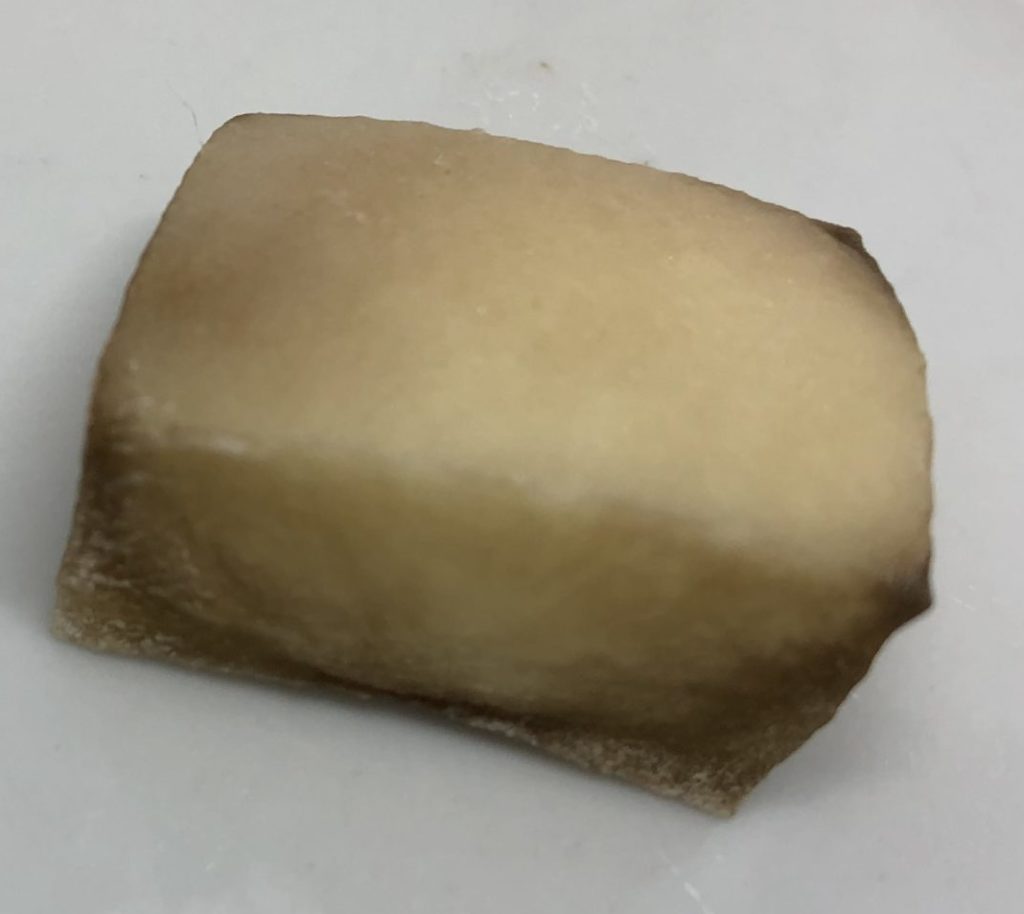
Olsen, who’s seen freshly cut potato flesh go from white to black in just an hour in her lab, said some varieties are more susceptible to blackening than others. While blackening is very common, it’s also possible a potato could retain its clean, white interior.
Cook potatoes right after chopping to avoid discoloration
Even just piercing a potato with a fork too far in advance can further lead to deathly shades. The metal in forks and knives, especially if they contain a little iron, can make the situation even worse.
If you really need to cut your tubers long before you cook them, try storing them in water or coating them in lemon juice to block exposure to oxygen that will lead to potato blackout.
But don’t freeze raw potatoes. That will mess with enzymes and texture and turn your prep work into a black potato bash.
The bottom line: procrastinators rejoice! Potatoes are best prepped at the last minute.
“Don’t peel potatoes and put them in the fridge,” Olsen said. “So many of these things can happen.”
SOURCES:

